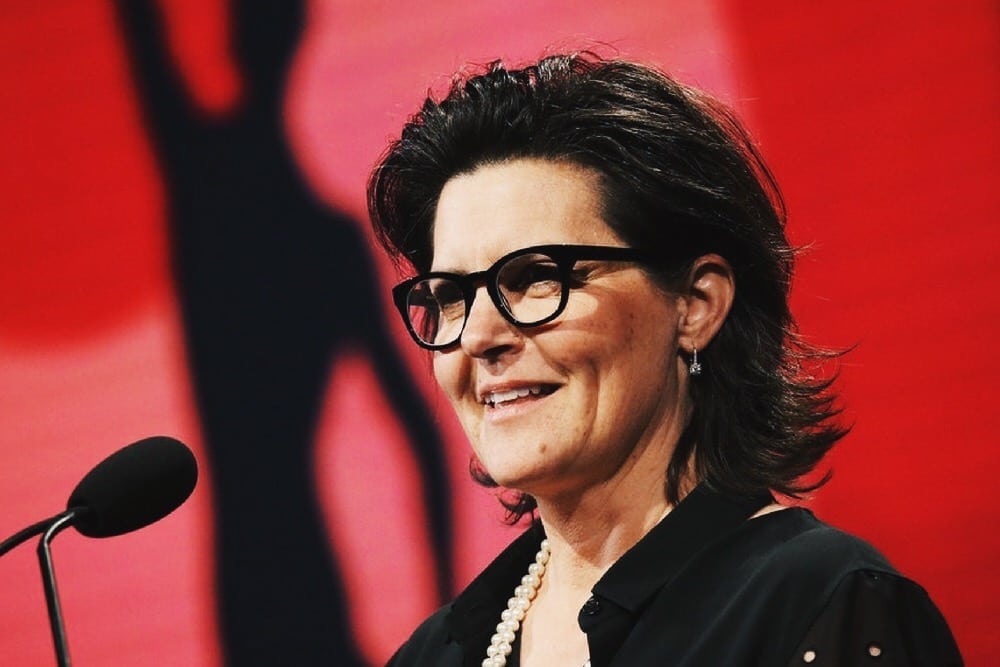It started with a trip to Indonesia. Now, Mega Sugianto’s dream of helping her home country is becoming a reality.
“I have never been this fulfilled,” says Sugianto, founder of Dream Chatter.
The former television reporter turned business owner describes Dream Chatter as a hand up, not a hand out. The project provides employment for female artisans living on the small Indonesian island of Sumba. Using a loom made out of sticks and pieces of wood, the women weave unique fabric designs. It takes about a week to complete the fabric, which is then sent to small businesses to be turned into various products, like handbags and clothing.
“Everyone has a different design, different technique, different mindset of what they want their fabric to look like,” she says.
Sugianto, who lives in Northern California, is working with 20 female Indonesian artists from Sumba as she prepares for Dream Chatter’s official launch at the end of this month. Normally, the women have to purchase the material to make the fabric, then travel to markets to sell their products. With Dream Chatter, Sugianto makes the process easier and more affordable. “I’m paying them better [and] giving them supplies, so they don’t have to pay for the threads,” she explains.
Sugianto’s motivation is to help end poverty in her home country. She spent her childhood in Indonesia before moving to the United States, and her first visit to Sumba was last summer. That’s when she saw not only the beauty of the island, but also the lack of basic necessities. She tells me: “They really don’t have anything. The kids have to come home and drop out of school because they need to fetch water or farm. It’s survival mode.”
Dream Chatter’s website says the women are “guaranteed a fair trade [and] guaranteed an income—something they cannot get on their own.” Sugianto pays the female artisans 50 percent upfront; once their designs are completed, she pays the remainder. She also pays the small businesses she works with.
“I believe that handouts can create some dependency,” she says. “I want to give [the women] the tools so they can empower their children.”
This employment gives these women a livelihood — and the power to feed their children. In a video posted on Dream Chatter’s website, one of the women explains the money she makes through the project is “for everyday living so I can buy rice for the children and I can buy soap for the children.”
The final products made in Indonesia will be sold through the website. Sugianto plans to use the profits from the sold products to reinvest in the business and ultimately hire more women. Five percent of the profits also go back to nonprofits focused on children’s education.
As the launch quickly approaches, Sugianto admits she’s “anxious and nervous,” but believes in her project — and for good reason. They’ve already sold out of their prototypes! Still, “it’s not necessarily about the money at all,” she tells HER Magazine. “Could [Dream Chatter] be a seed to their children’s future? It’s their livelihood that weighs on my shoulders.”
Sugianto often makes her business calls in the middle of the night due to the time difference. For her, this is not only a passion project, but an adventure in starting a new business. “I’ve got all this stuff. I have a lot of things running through my head. What’s the most important thing to do this week?” she asks aloud, always looking forward and processing how she can make Dream Chatter successful.
Despite sleepless nights (Dream Chatter gets its name from the fact that she talks in her sleep), Sugianto is in this for the long haul. Her family, friends, and fiancé have provided her with the emotional and financial support to make this project happen, and knowing she’s helping provide jobs for other women means everything to her.
“Someone else needs me,” she says. “I’m not going to make a huge impact right away, but if it helps one family, it’s totally worth it.”







